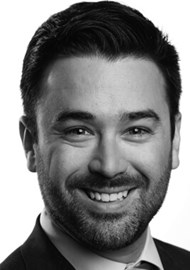More than 500,000 people across the globe will die this year from head and neck cancer, which is the sixth most common cancer in the world and comprises malignancies of the nose, mouth, throat, larynx, and neck. Assuming current trends continue, recently published projections estimate that head and neck cancer will result in excess of 700,000 annual deaths and up to $535 billion in economic losses by 2030 [1]. This article by Drs Patterson, Alkire and Yadav provides an outline of the problem and offer some useful solutions.
There is immense suffering inflicted upon patients with cancers of the head and neck. In addition to compromising one’s ability to speak, eat and drink, head and neck cancer can result in dramatic disfiguring of one’s face which often leads to shame and social isolation, especially when left untreated. Moreover, patients with tumours growing into their airway often confront a sense of near suffocation, and indeed, many do eventually asphyxiate.
Even if they have the same cancer of the head or neck, someone in sub-Saharan Africa or South Asia is likely to have a worse outcome than someone in Europe [2]. The reasons for this are complex, but insufficient access to comprehensive cancer care is primary among them. For example, at the Patan Academy of Health Sciences in Nepal, there are significant challenges in ensuring optimal care for head and neck cancer patients. Due to the rampant consumption of tobacco-related products (e.g., ‘gutkha’), and alcohol, head and neck cancer is quite common here. The oral cavity, larynx and hypopharynx are the most common subsites. Most of these patients present late in an advanced stage and require extensive surgical resection, often with lack of local expertise in reconstruction and rehabilitation.
These challenges exist well beyond Nepal, and they have devastating effects. As patients frequently arrive at healthcare facilities with debilitating tumours that are too advanced for curative treatment, many suffer irreparable economic harm and are even pushed into poverty. They also frequently experience catastrophic physical and psychological effects from their disease.
“Many low- and middle-income countries do not have even a single fellowship-trained head and neck surgeon”
In recent decades, the global health community has prioritised prevention as a means to reducing the impact of avertable conditions like head and neck cancer. The prevention of tobacco use, in particular, is a goal that has garnered significant political support. As such, high-level policy-level efforts have focused on preventing tobacco use in order to decrease the impact of associated conditions, like head and neck cancer [3]. Despite these efforts, hundreds of thousands of people continue to contract these cancers, and they need treatment.
Surgery remains an essential diagnostic and treatment modality for many head and neck cancers. For example, early-stage oral cavity cancers can often be cured through surgical removal of the lesion. However, there are immense disparities in those who have access to high-quality head and neck oncologic surgery. Timely and affordable access to surgical treatment and chemoradiation therapies is often commonplace in high-income countries. While most major cities in the US or the UK have one, if not several, head and neck oncologic surgeons, many low- and middle-income countries do not have even a single fellowship-trained head and neck surgeon. Furthermore, the multispecialty teams required to administer head and neck cancer treatment are often non-existent. Patients in these countries suffer as a product of delayed or absent care.
Beyond the overwhelming human suffering caused by head and neck cancer, inadequate access to head and neck cancer care manifests in economic losses. It is estimated that the world will lose up to $535 billion in gross domestic product (GDP) from these deaths by 2030. The poorest countries will bear almost three-quarters of this burden, and the World Bank regions of South Asia and Southeast Asia, East Asia, and Oceania will shoulder losses of $133 billion and $180 billion, respectively. Poor families, communities, and economies will be most affected in these countries.
These disparities in head and neck cancer care, outcomes, and economic ramifications reflect a broader barrier in access to care delivery systems and limited surgical workforce, harmonising with the 2015 Lancet Commission on Global Surgery finding that five billion people lack access to safe, timely, and affordable surgical services [4]. Of these five billion people, poor and disadvantaged patients in low- and middle-income countries are the least likely to have access to comprehensive care.
“Progress is being made. Momentum for global surgical care is growing, and this presents an opportunity to improve access to high-quality care for head and neck cancer”
Progress is being made. Momentum for global surgical care is growing, and this presents an opportunity to improve access to high-quality care for head and neck cancer [5]. Surgery has been shown to be a cost-effective intervention, and the creation of surgical capacity inherently develops ancillary services, like pathology, imaging, and supply chain, that are needed for high-quality medical care [6]. Emblematic of this progress, more than five countries have signed National Surgical, Obstetric, and Anesthesia Plans (NSOAPs) designed to develop surgical systems, and over 20 more NSOAPs are in development [7].
However, progress in head and neck cancer care is lagging, and the status quo is unacceptable. Head and neck cancer care has not been explicitly included in NSOAPs, and much-needed head and neck cancer research and interventions are not international funding priorities. Effective treatments exist for these cancers, but there is insufficient financial and political support to facilitate this care for many people. To avert this immense burden of disability, death, and financial loss, head and neck cancer surgery should be prioritised within global health initiatives on cancer care and surgical policy like NSOAPs.
Given their expertise and close patient relationships, physicians who treat head and neck cancer, like otolaryngologist-head and neck surgeons and oral and maxillofacial surgeons, must lead research and advocacy to enable access to head and neck cancer treatment. Furthermore, multilateral organisations and national governments must prioritise funding for the surgical treatment of head and neck cancer. By pairing access to specialty surgical care with strong prevention strategies, we can turn the tide to prevent unnecessary suffering and death from head and neck cancer.
References
1. Vos T, Abajobir AA, Abate KH, et al. Global, regional, and national incidence, prevalence, and years lived with disability for 328 diseases and injuries for 195 countries, 1990–2016: a systematic analysis for the Global Burden of Disease Study 2016. The Lancet 2017;390(10100):1211-59.
2. Patterson RH, Fischman VG, Wasserman I, et al. Global Burden of Head and Neck Cancer: Economic Consequences, Health, and the Role of Surgery. Otolaryngol Neck Surg 2020;162(3):296-303.
3. WHO Framework Convention on Tobacco Control. WHO. 2005.
4. Meara JG, Leather AJM, Hagander L, et al. Global Surgery 2030: evidence and solutions for achieving health, welfare, and economic development. Lancet Lond Engl 2015;386(9993):569-624.
5. WHO Director General Dr. Tedros Addressing the Global Surgery Community March 20, 2019. YouTube.
www.youtube.com/watch
?v=P1XLthxQs7g&t=38s
6. Patterson R, Meara J. The Missing Piece in the Struggle for Universal Health Coverage. Global Citizen. 2018.
www.globalcitizen.org/en/content/
universal-health-care-surgery-social-change/
7. National Surgical, Obstetric and Anesthesia Planning. Program in Global Surgery and Social Change – Harvard Medical School.
www.pgssc.org/national-surgical-planning






